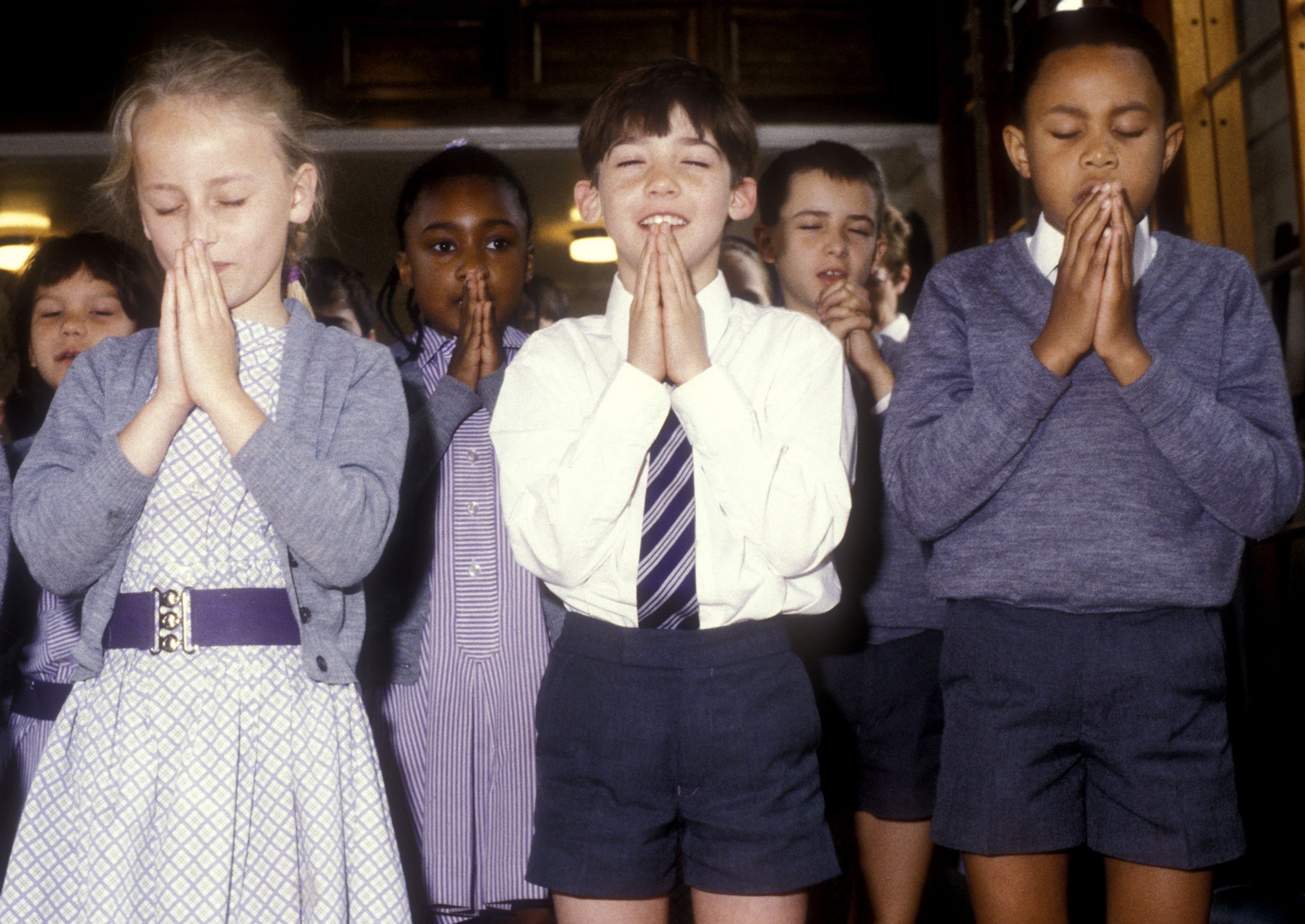Faith schools don't teach religious extremism, they help stamp it out
Just look at the Church of England schools in Birmingham, which educates children of all faiths and none

Your support helps us to tell the story
From reproductive rights to climate change to Big Tech, The Independent is on the ground when the story is developing. Whether it's investigating the financials of Elon Musk's pro-Trump PAC or producing our latest documentary, 'The A Word', which shines a light on the American women fighting for reproductive rights, we know how important it is to parse out the facts from the messaging.
At such a critical moment in US history, we need reporters on the ground. Your donation allows us to keep sending journalists to speak to both sides of the story.
The Independent is trusted by Americans across the entire political spectrum. And unlike many other quality news outlets, we choose not to lock Americans out of our reporting and analysis with paywalls. We believe quality journalism should be available to everyone, paid for by those who can afford it.
Your support makes all the difference.The publication of the OFSTED report into 21 schools in Birmingham linked to the “Trojan Horse” affair led to a flurry of tweets and comment from the British Humanist Association (BHA) yesterday.
The thrust of their contention - that the OFSTED report showed the damage done by the presence of faith schools in the education system – is a shaky attempt to build one of the BHA’s long held aims into the news agenda.
The tweeting of a comment from the debate on the report was typical: “Great from @crispinbluntmp - there should be no faith schools, every school should prepare pupils for life in wider British society”.
Unfortunately for the BHA the facts do little to support their claims. The fundamental problem with the BHA’s argument is that none of the schools being looked into in Birmingham are faith schools.
Not one.
Of the 21 Birmingham schools investigated by Ofsted, eight are academies and thirteen are local authority run. So the BHA’s argument that “the way to stop this kind of thing is to make get rid of faith schools” is not simply misleading. It is so far off the mark as to require special measures.
Perhaps one of the deeper ironies of the BHA’s attempt to hijack this issue for their own aims is that it is a perfect example of using a “Trojan Horse”; using the OFSTED findings as subterfuge for attacking the work of church schools not least in Birmingham itself.
The Church of England educates a million children a day in its schools. The contrast between some of the findings in the recent OFSTED investigation and the experience of those educated at Church of England schools stand in marked contrast.
As the former Chief Rabbi, Dr. Jonathan Sacks, wrote of his own experience of Church of England primary and secondary schools: “I went to Christian schools, St Mary's Church Primary, then Christ's College Finchley. We Jews were different and a minority. Yet not once was I insulted for my faith.”
The work of Church of England schools in Birmingham is that the best way of countering religious extremism is to engage with faith and not banish it. For over a decade some Church of England primary schools in the city have had an almost 100% school roll from Muslim families, serving children from local communities in the inner city.
Every Church of England School in the city educates children of all faiths and none. Meanwhile the Church of England’s only secondary school in the city provides an account of excellence and achievement in the midst of challenging circumstances.
St Alban's Academy is the only state-funded Church of England secondary school in Birmingham and is the nearest secondary school to the city centre. The proportion of students known to be eligible for free school meals is far above average. The percentage of students from minority ethnic backgrounds is more than four times the national figure. The percentage of students with special educational needs and/or disabilities is high above the national average.
The School’s most recent OFSTED report (from 2011) found the school was “outstanding”. The report said: “From exceptionally low attainment on entry, students leave with above average attainment and outstanding achievement.”
It also highlighted the achievements of the school in providing: “outstanding spiritual, moral, social and cultural development that underpins students’ exemplary behaviour and makes an exceptional contribution to their excellent learning.”
This is the experience of millions of families who have been served by Church of England schools which remains a testament at firm odds with the doctrinaire dogmatism and opportunism of the BHA.
Join our commenting forum
Join thought-provoking conversations, follow other Independent readers and see their replies
Comments